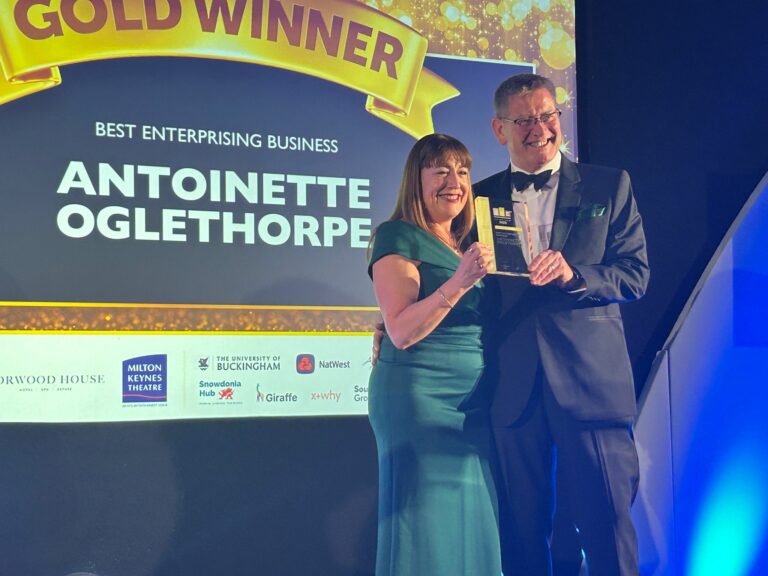As part of our events programme, we run a free webinar every month on a different topic related to career management and mentoring. Last month our webinar was on the subject of “Career Development in Organisations: What Role Does It Play?” One participant submitted some fantastic questions that warranted more attention than we could give. So, I promised I would write a series of blog posts to address them. My last blog post about trends in career development was the first in the series. Today we move on to answer the question “What are some common obstacles organisations face when trying to implement a career development programme and how can they be overcome?” This is a question that we discuss as part of our Certified Facilitator Programme so we know this is a challenge faced by many. Here are my thoughts:
1. Alignment with Organisational Goals
Obstacle: This is the number one priority for any initiative to be a success within an organisation. If career development programmes are not aligned with the strategic goals of the organisation, they may be seen as irrelevant or a distraction.
Solution: To address this, be very clear on what problem the programme aims to solve or what opportunity you are trying to take advantage of. Examples might include reducing employee turnover and retaining talent. Or maybe it’s about cultivating a strong pipeline of future leaders. Alternatively, it might be a desire to increase employee engagement and morale. Aligning the programme with the organisation’s goals establishes the business case for the investment. It also helps you identify the key metrics you should track to evaluate the return on that investment.
Example: One of our clients is a fast-growing technology company who wish to scale quickly. They will need a strong pipeline of future leaders to do that while retaining and developing the organisational culture. It was important to them to ‘grow their own’ so they recommended a career development programme for aspiring leaders. By being clear on the strategic drivers behind the programme, they were able to design the programme to meet the organisations goals. Key components included: leadership training and workshops; mentorship and coaching; leadership role assignments, job shadowing and action learning projects. To evaluate the effectiveness of the programme, they compared promotion and retention rates among participants compared to non-participants. They also monitored changes in engagement and satisfaction scores among programme participants. Higher scores suggested that the programme was successful in engaging and retaining top talent.
2. Lack of Management Support
Obstacle: Without buy-in from management, career development programmes can struggle to gain traction or receive the necessary resources they need.
Solution: To gain management support, prove the programme’s value through clear metrics and success stories. Highlight how career development can lead to increased employee satisfaction, retention, and productivity. Engaging managers in the planning process can also foster a sense of ownership and commitment.
Example: One of our clients told us how they had struggled to launch a career development programme due to lukewarm support from upper management. They decided to tackle this by conducting a pilot programme with a target group of high potential employees. They then tracked employee experience and perception of career development. After six months, they presented data showing 82% of employees reported an increase in career conversations; 92% of employees who had a career development conversation felt more positive about their future and 62% of employees who had a career development conversation were more likely to stay with organisation. By sharing these tangible results and involving managers in the programme’s development, they secured the necessary buy-in and expanded the programme company-wide.
3. Limited Resources
Obstacle: Organisations often face constraints in terms of time, budget, and people. This, in turn, impedes the development and implementation of career development programmes.
Solution: On our Certified Facilitator Programme, we talk about the power of small steps when trying to create change in an organisation. So, in these situations we recommend starting small and then scaling up. As with the above example you can begin with pilot programmes or focus on high-impact areas. Another approach is to take advantage of existing resources such as internal training programmes, mentoring schemes, or online learning platforms. A third approach is to develop the capability to deliver the initiative in-house rather than rely on third party-providers.
Example: A large, global client of ours faced budgetary constraints but was keen to develop its workforce. In particular, they wished to develop the career conversation capability of their managers. They started by focussing on their global HR function. They invested in our online learning materials which they added to their own learning management system. They then embarked on a blended learning journey where the HR professionals worked through the materials at their own pace and came together for facilitated live online sessions to reflect on their learning, practice the skills and discuss their application. Once confident in their own skills the HR team then worked in pairs to roll the learning out to managers across the world. It is early days for this client, but signs are positive as shown by the number of managers who have now participated in the training.
4. Employee Reluctance
Obstacle: Employees may be sceptical or reluctant to take part in career development programmes. This may be due to fear of change, lack of time, or uncertainty about the benefits.
Solution: It is important to communicate the benefits clearly and consistently but not just in dry terms and data. Much more effective is to harness the power of storytelling. At every level in an organisation there are people who are committed to developing their own careers as well as supporting the career development of others. We call them the ‘Career Champions’. We recommend enlisting their support. Encourage them to share stories that show how career development can lead to personal growth, increased job satisfaction, and career advancement. Those success stories can be captured in person, in writing, on video, via audio or all the above. Make sure the people you choose represent the full diversity of ages, grades, roles, functions etc.
Example: One of our certified facilitators told us that many of their employees were initially hesitant to join the career development programme. The HR department responded by conducting video interviews with colleagues who had progressed in their careers thanks to the programme. They shared these stories on their Learning Management System (LMS) and also in their emails promoting the programme. To ensure the programme was accessible to all, they used a variety of flexible formats. Lunchtime workshops and online courses, made it easier for employees to take part without disrupting their work. Over time, participation rates increased significantly.
5. Inconsistent Implementation
Obstacle: Inconsistent application of career development initiatives can lead to uneven experiences and perceptions of favouritism or unfairness among employees.
Solution: It is always difficult to ensure consistency of experience when you are dealing with a large number and wide variety of employees and their managers. As far as possible, try to standardise the process and ensure transparency. Develop clear guidelines and criteria for participation in the programme and do your best to ensure everyone has access to the same opportunities.
Example: One of our clients found that some departments were holding career conversations as a regular part of their management practice, and some were not. Additionally, some departments were promoting and recommending the company’s mentoring programme and career development workshops. This resulted in different levels of employee engagement, satisfaction and retention between departments. To address this, they created standardised expectations around development conversations and clear guidelines for the training and resources available to support career development. They trained managers across all departments on these expectations and guidelines. They also established a centralised tracking system to ensure fairness and consistency. This approach helped to build trust and equity in the programme.
6. Insufficient Follow-Through
Obstacle: Career development programmes can sometimes falter due to a lack of ongoing support and follow-through. There can be a huge input of resource at the launch of the programme. After that, it is left to employees and managers to make the most of the resources that are available. Sadly, that does not always work.
Solution: We recommend establishing a continuous feedback loop. Regularly check in with participants and mentors to assess progress and address any challenges. Create a structured follow-up process to ensure ongoing development and support. Encourage a culture of continuous learning and improvement.
Example: One of our clients told us that a year before, they had launched a promising career development programme, but it lost momentum after a few months. Recognising this, they implemented a robust follow-up system where the Learning and Development Co-ordinator regularly checked in with participants and mentors. They also held quarterly review meetings to discuss progress and challenges, ensuring that the programme remained active and effective. Between these events they ran workshops and masterclasses on different skills needed for effective career development and these were reinforced with a library of online resources and success stories. This sustained engagement kept the programme vibrant and beneficial for all involved and raised its profile within the organisation.
By recognising these obstacles and taking steps to proactively address them, you can create robust and effective career development programmes that benefit both employees and the organisation as a whole.
We’re here to help
As a professional training and coaching company specialising in career management, our Career Conversations Programmes are designed to give managers and employees the tools and confidence needed to have discussions that engage, retain and develop your people. We offer a free, no-obligation, discovery call, to discuss the career development needs of your organisation. Where we can share ideas and best practise, without a hard sell, we promise.



